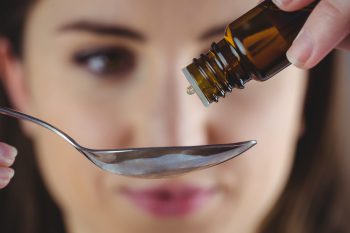Dr. Deanna Minich
Currently, she is Faculty for the Institute for Functional Medicine and the University of Western States. She has developed an online certification program for health professionals so that they can apply the color-coded 7 Systems of Full-Spectrum Health in their practice. Her lectures are heard by patients and practitioners throughout the world. Dr. Minich’s passion is teaching a whole-self approach to nourishment and bridging the gaps between science, spirituality, and art in medicine.
Latest posts by Dr. Deanna Minich (see all)
- Test limited category - Apr 20th, 2017
- Two Essential Ingredients For An Optimal Diet - Sep 9th, 2016

It seems like doctors, nutritionists, scientists, and other health experts are always at odds over the optimal diet. Should we be eating Paleo or vegan? What about raw or cooked food? Are carbs or fat the next “untouchables”? Are we avoiding gluten, dairy, sugar, or all three? The list of questions goes on and on…
However, there are two things that seems to be a mainstay in every recommended diet, and that all health experts seem to agree are an essential part of a healthy diet: fruits and vegetables.
It turns out, your mom knew what she was talking about when she told you to eat your vegetables, or reminded you that “an apple a day keeps the doctor away”. The rainbow spectrum of fruits and vegetables are one of our most powerful allies against a toxic environment, and provide protection against pollutants.
In my 21-day detox program, Whole Detox, I advocate for the power of a plant-focused diet to both protect the body against the toxic external environment and remove toxins internally. In short, a targeted, colorful diet of fruits and vegetables is a simple and effective path to reduce toxic exposure.
Many recent studies have also shown the protective and detoxing abilities of nature’s powerhouses. Here’s the latest:
Fruits and vegetables may protect against oxidative stress
We know that exposure to toxins can lead to problems like oxidative stress and inflammation in the body. However, a research article I was recently reading showed that pregnant women eating fruits and vegetables – especially those high in vitamin C like oranges, strawberries, and kale – were more protected against the oxidative stress associated with exposure to toxic polyaromatic hydrocarbons (toxins that are released when we burn things like coal, gas, trash, or wood).
Pregnancy is such a tender time, and there can be several environmental influences that can change the epigenetics of the fetus. From this study, it seems that fruits and vegetables can provide an added insurance for these women and their children.
Fruits and vegetables may reduce genetic damage and increase antioxidant levels
Along similar lines, coke oven workers in China were studied because they are known to be exposed to a wide variety of toxic, carcinogenic chemicals, including polycyclic aromatic hydrocarbons and benzenes. Their working environment is incredibly toxic! In this study, the researchers found that the consumption of fruits and vegetables increased antioxidant levels and decreased oxidative stress and genetic damage in the workers.
Fermented vegetables may support important detoxing antioxidant enzymes
And, finally, on a related note, another article from this year reported on how fermented foods (which are typically vegetables like cabbage) can produce a specific class of compounds called alkyl catechols in the fermentation process. These compounds have the ability to increase genetic expression of antioxidant enzymes in the body that are important for detox. It’s so important to bring back these traditional ways of food preparation! It’s not just the fruits and vegetables we eat, but how we prepare them, too.
When I look at the scientific research to support eating fruits and vegetables, it’s truly amazing to see such a wealth of information. Hands down, all foodie factions can unite with plants! While you may not be able to avoid all toxic exposures, you can reduce the inner pollution with colorful nutrition.
Learn more about plants, phytonutrients and detox in our next online, community-based Whole Detox program starting October 1. It’s 21 days and full of bursting color, inspiration, and information for your everyday life!
Published in Body, NutritionTags: fruits vegetables














